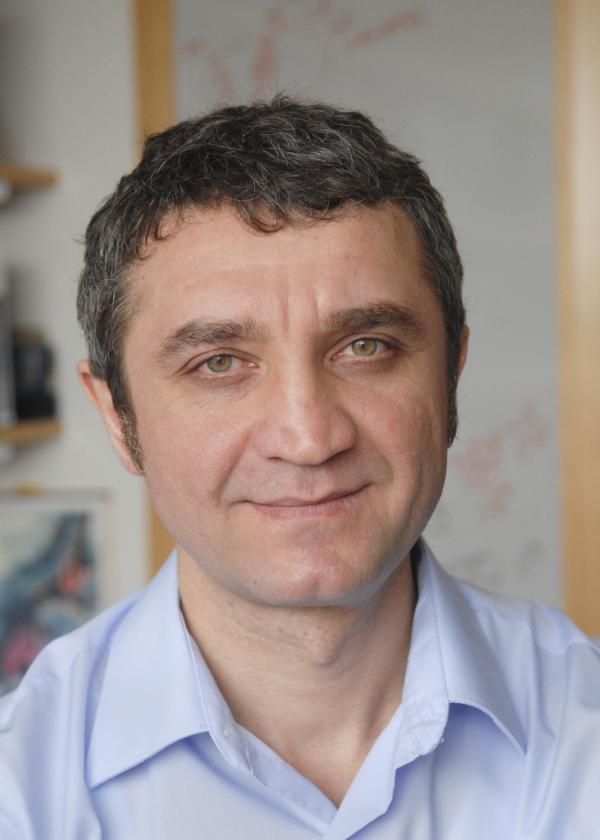Immunology From First Principles

Ruslan Medzhitov, Ph.D.
Sterling Professor of Immunobiology
Investigator, Howard Hughes Medical Institute
Yale School of Medicine
Ruslan Medzhitov was born in 1966 in Tashkent. He earned a Bachelor of Science at Tashkent State University before going on to pursue a PhD in biochemistry at Moscow State University. In 1992 he read an article by Charles Janeway about a hypothetical flip-flop triggered innate immunity.
Before going to Yale, he was a fellow in the laboratory of Russell Doolittle at the University of California, San Diego. A graduate student with no special immunological training, he realized that it was necessary to find pattern-recognizing receptors and was determined to do so. He wrote to Janeway about his desire to work on this topic, but he did not immediately accept him into his laboratory. He did his post-doctoral training with Janeway at Yale University School of Medicine from 1994 to 1999.
In 1997, Medzhitov and Janeway proved that humans have a Toll-like receptor (later named TLR4 ), which activates genes necessary for the immune response. In 2000, Medzhitov was selected as a Searle Scholar. On April 27, 2010, he was elected to the US National Academy of Sciences and became one of the youngest academicians. In 2011, the Russian edition of Forbes published a list of 50 Russians who “conquered the world”. It includes scientists, businessmen, cultural and sports figures who have integrated into the world community and have achieved success outside of Russia. Medzhitov was included in this Forbes list of 10 famous scientists of Russian origin.
On May 15, 2012, Medzhitov was awarded a diploma and a medal of the Honorary Professor at Moscow State University, where he regularly reads his lectures. Currently, he serves as a Sterling professor at the Yale University School of Medicine.
Summary
The lecture will discuss allergic immunity – role of the environment in allergic sensitization, differences of allergic immunity with antimicrobial immunity, and the role of neuro-immune interactions in allergies. He will also discuss ecological perspectives o the biological functions of allergic defenses and possible roles of the rise of allergic diseases. Finally, he will discuss the role of antigen exposure and antigen cross-reactivity in protection and susceptibility to allergic diseases.
Learning Objectives:
- Understanding basic biology and unique characteristics of allergic immunity
- Learning about the role of environment in protection and susceptibility to allergic sensitization
- Understanding evolutionary and ecological basis for allergic diseases
https://videocast.nih.gov/watch=55037
This page was last updated on Monday, May 5, 2025